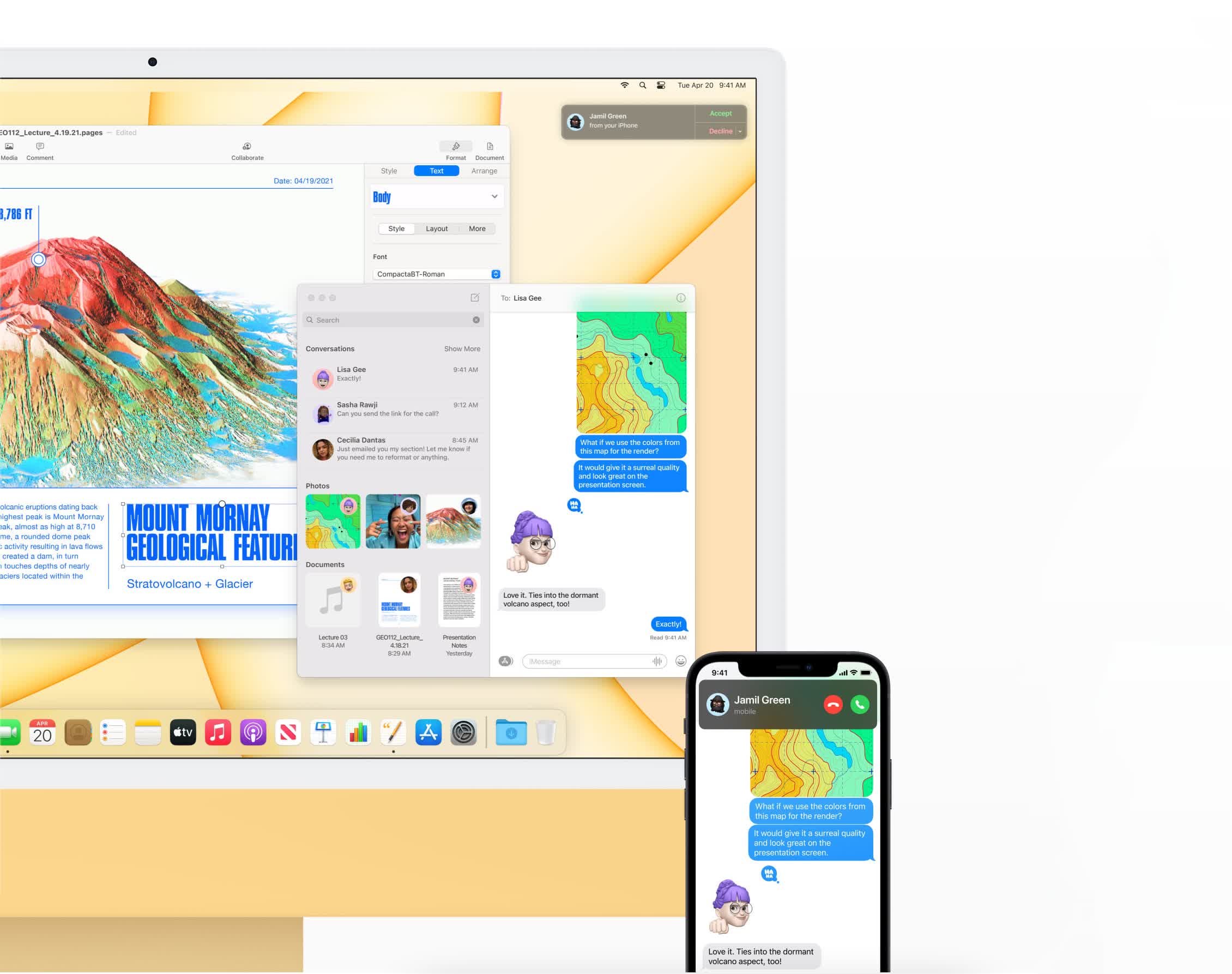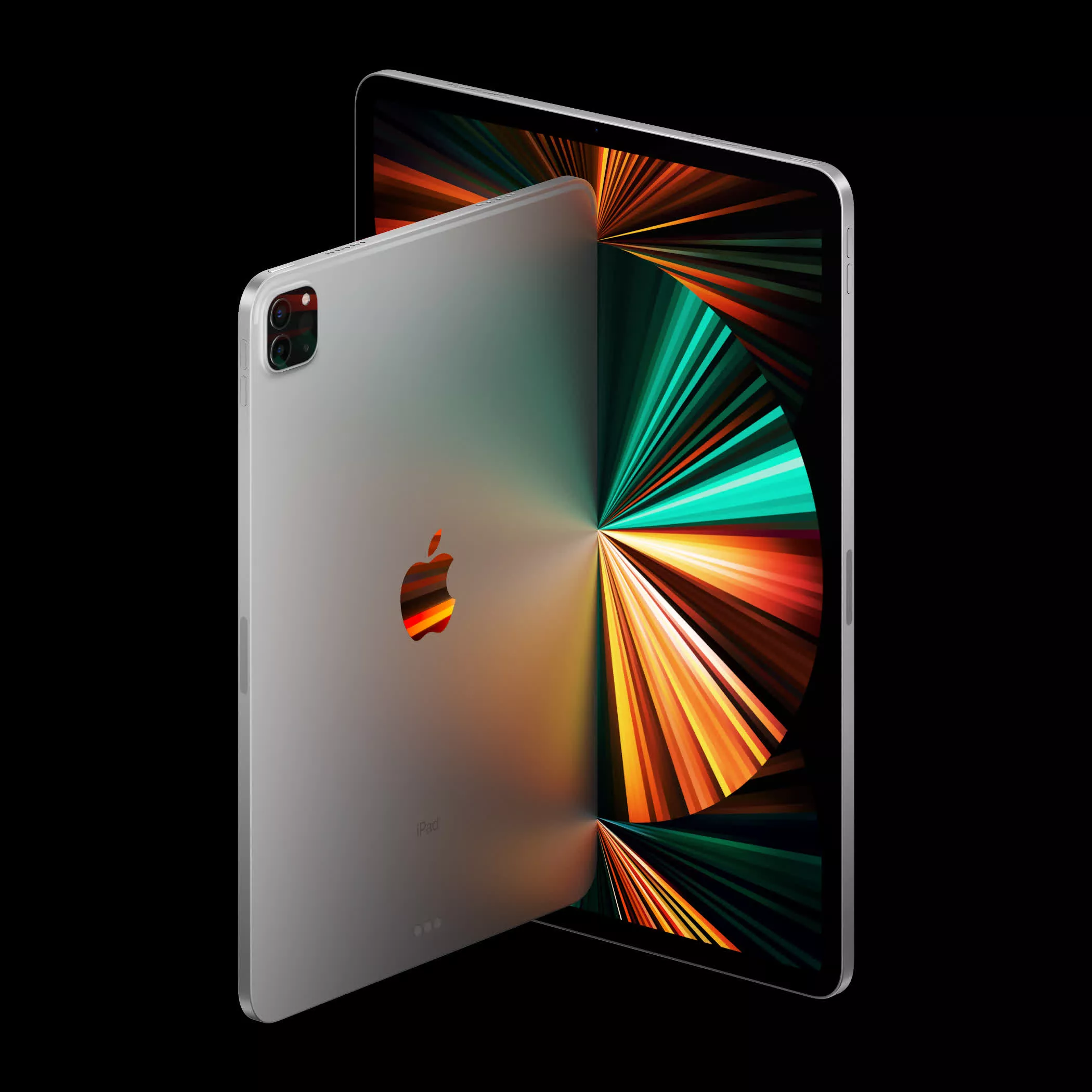Highly anticipated: It’s tough to keep a secret in the tech industry these days. Just ask Apple. After years of “didn’t see that coming” (or, at least, the hope of “One More Thing…”), it’s becoming increasingly rare for Apple to be able to pull off a genuine surprise at their big launch events, especially on the product side.

Yesterday’s Spring Loaded event was no exception, with the debut of a widely anticipated new iPad Pro, AirTags location finders, Podcast service, and the svelte new iMacs. But while there may not have been any serious product surprises, there was a little bit of uncertainty about the direction and speed of its technical transition to Arm-powered devices.
Those questions were completely put to rest, however, with the new iMac and iPad Pro announcements and the inclusion of the company’s self-designed M1 chip into both products.
It’s now clear that Apple is not only committed to making the M1, and its subsequent Arm-powered processors, the core of all its major computing devices, but that it’s moving at an even faster pace than many initially anticipated to achieve that changeover.
In fact, if there was any surprise from the event it was the degree of emphasis that Apple put on the M1—it was arguably the star of the show (except, of course, for Tim Cook’s guest spin as an M1 stealing super thief -- watch below). Apple clearly highlighted the critical role that the power efficient M1 had in enabling the extremely thin new iMac design, as well as the additional performance capabilities it brings to both the iMac and the iPad Pro.
In the process, the company cleverly succeeded in delivering multiple important messages to different audiences. First, to consumers, they made it clear that they should want any and all of their future Apple computing device purchases to be powered by the M1 or its successors.
In a sense, Apple is developing CPU branding. They’ve had such strong initial success and positive response to the first M1 Macs that they’re taking advantage of that and kicking up the volume on their outgoing messaging. In fact, given that they chose to transition the iPad Pro from an A series processor to an M series and then touted the huge performance gains that occurred from doing so, it may even start to raise questions about other iPads that don’t have an M1. (And might we even see requests for an M1-powered iPhone? I wouldn’t be surprised….)
In a sense, Apple is developing CPU branding.
Second, to developers, the M1 emphasis served as a shot over the bow that if they haven’t taken their development efforts for Arm-native apps seriously, they better start doing so, and quick. Yes, many of the biggest developers have been vocal about their support of M1, but for major transitions to be really successful, Apple has to rally the long tail of smaller developers who make up an incredibly important (but often overlooked) role in any ecosystem. My guess is that there have been a lot of conversations over the last day or so at these smaller organizations about how they can accelerate their M1 native efforts.
Finally, to the tech industry at large, Apple pushed forward with its message about the criticality of custom silicon. Many tech companies look to Apple for a sense of direction—some more obviously than others—and the fact that the company used their custom chips as a linchpin in the story they told around these new products speaks volumes about the priorities that Apple now has. In the process, they also laid down a gauntlet, challenging others to try and match what they’ve been able to build with the M1 (as well as all their other custom silicon efforts).

Of course, the appeal of Apple’s latest products wasn’t all about tech—though the Liquid Retina XDR display on the new iPad Pro certainly sounds impressive, and the automatic calibration of the new 4K Apple TV is very slick for home theater junkies. Still, there was that thing about color.
(Apple) also laid down a gauntlet, challenging others to try and match what they’ve been able to build with the M1
As silly or unimportant as some may believe that to be, adding new colors to a computer does offer a degree of personalization that some people—particularly younger buyers who are often drawn to Apple products anyway—find incredibly important. Of course, it’s also a bit nostalgic for older Apple fans who distinctly recall the early colored plastic and CRT-equipped iMacs.
What’s interesting is that, thanks in part to the super thin, slick new design of these iMacs, color feels entirely fresh and new again. Ask me in two years and I may not feel the same way, but many tech products have clearly succumbed to the whims of fashion trends—particularly as they become so embedded into our lives. And just as in fashion, things like color come and go. Yet, in an era where we could all use a little more color and simple joy, colored iMacs feel strangely right, especially given what a nice job Apple has done in extending that color through all the peripherals.
Ultimately, what Apple managed to do in the action-packed hour of their Spring launch event is demonstrate once again that they still have a strong sense of where tech-focused consumers are headed and that they still know how to produce some pretty slick hardware. It’s a difficult path to continue forging, but it’s nice to see that they still know how to get it done.
Bob O’Donnell is the founder and chief analyst of TECHnalysis Research, LLC a technology consulting firm that provides strategic consulting and market research services to the technology industry and professional financial community. You can follow him on Twitter @bobodtech.
https://www.techspot.com/news/89391-m1-everywhere-apple-accelerates-custom-chip-transition.html